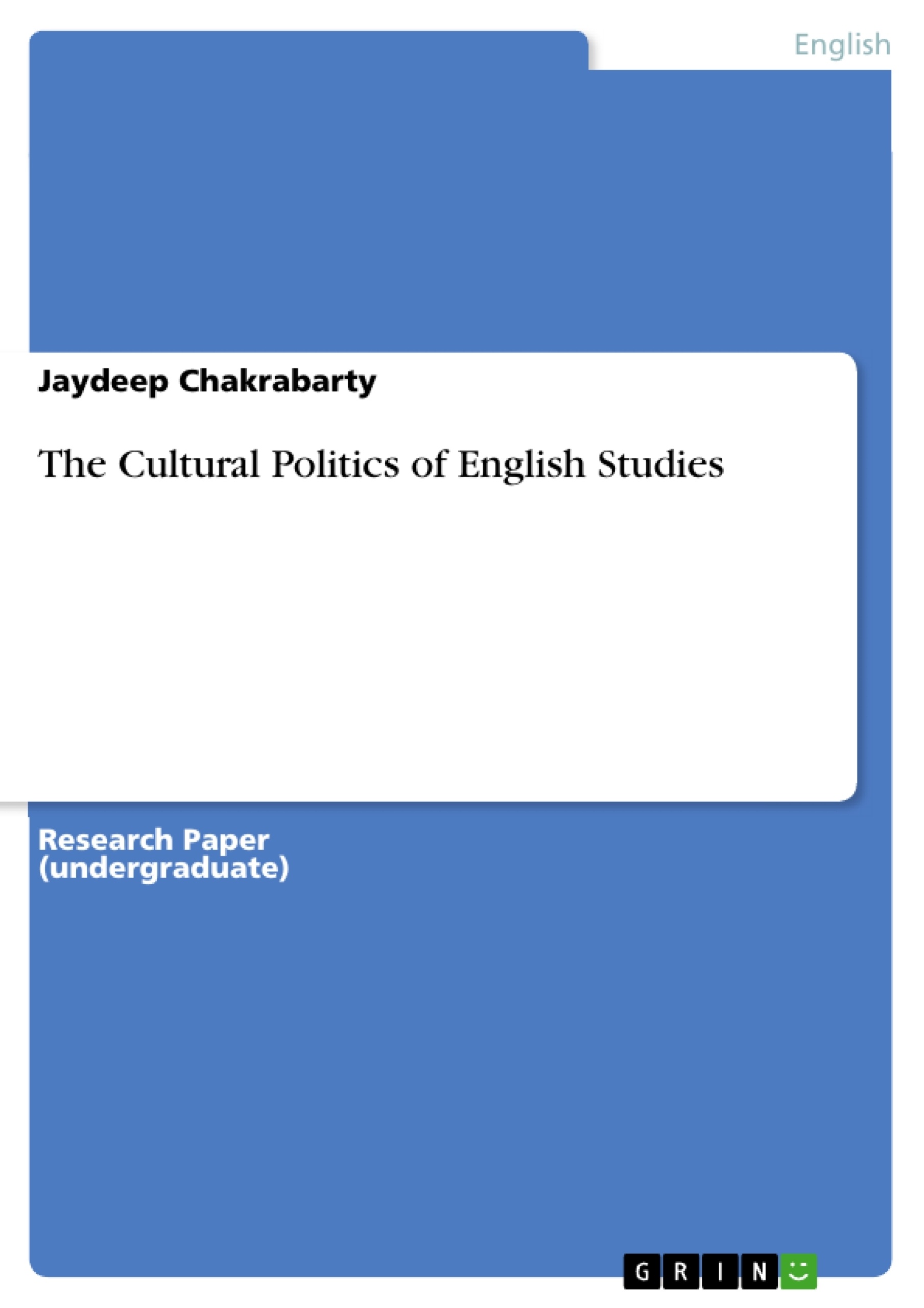English Schools and Departments in India started functioning well before English was grudgingly recognized as a subject in England. But in India, it was the master’s voice, the colonizers tongue, and not a neglected discipline at all. A discipline and subject thought to be of little importance in its own country assumed prime importance in its colonial underbelly. However, shortly following this, there have been tireless attempts in England to turn English into a subject of respect within the University and beyond. A group of critics, scholars and poets worked in close collaboration to consolidate English. This book is an exploration of the story of English in England and beyond.
Inhaltsverzeichnis (Table of Contents)
- Introduction
- The English Canon: Boundaries of Cultural Politics
- F.R. Leavis and the English Canon
- Reading Edward Said re-reading Conrad.
- Colonialism in the Canon: A New Look at Great Expectations
- Beginning the Novel: A Saidian Mediation
Zielsetzung und Themenschwerpunkte (Objectives and Key Themes)
This book explores the history and development of English literature, both in England and its colonial contexts. The author examines the English canon and its relationship to cultural politics, highlighting the role of colonialism and power in shaping literary traditions.
- The construction and evolution of the English canon
- The influence of colonialism on English literature
- The politics of exclusion and inclusion in literary canons
- The significance of Edward Said's work in critiquing Western canons
- The interconnectedness of literary study and cultural politics
Zusammenfassung der Kapitel (Chapter Summaries)
- Introduction: The chapter introduces the topic of the English canon and its historical development, highlighting the significance of its study in both England and its former colonies. It explores the evolution of English literature as a formal academic discipline, comparing its trajectory in England and India.
- The English Canon: Boundaries of Cultural Politics: This chapter examines the concept of the canon, arguing that it is not a neutral or objective entity but rather a product of specific political and cultural forces. It explores how canons are formed, maintained, and contested, emphasizing the role of power, exclusion, and inclusion in shaping literary traditions.
- F.R. Leavis and the English Canon: This chapter focuses on the work of F.R. Leavis, a prominent figure in English literary criticism, and analyzes his contribution to the formation and consolidation of the English canon. It examines Leavis's ideas about literary value and his influence on the development of the discipline.
- Reading Edward Said re-reading Conrad.: This chapter examines Edward Said's critical re-reading of Joseph Conrad's works, focusing on Said's analysis of colonialism and its impact on both Conrad's writing and the English canon more broadly. It explores Said's use of postcolonial theory to challenge dominant interpretations of canonical texts.
- Colonialism in the Canon: A New Look at Great Expectations: This chapter offers a new perspective on Charles Dickens's "Great Expectations," analyzing the novel through a postcolonial lens. It examines the ways in which the novel reflects and reinforces colonial ideologies, while also highlighting the potential for resistance and subversion within its narrative.
- Beginning the Novel: A Saidian Mediation: This chapter continues the exploration of Edward Said's work, analyzing his contribution to the field of postcolonial literary studies. It examines Said's ideas about the relationship between literature, colonialism, and cultural identity, highlighting his impact on contemporary approaches to literary interpretation.
Schlüsselwörter (Keywords)
This book explores key concepts such as the English canon, cultural politics, colonialism, postcolonial theory, literary criticism, Edward Said, F.R. Leavis, and the history of English literature. It focuses on the intersection of literary study and political contexts, examining the role of power, exclusion, and representation in shaping literary traditions and their interpretation.
How did English literature become an academic subject in India?
English was established as a major subject in India by colonizers as the "master's voice" well before it was fully recognized as a respected discipline in England itself.
What is the 'English Canon'?
The canon is a collection of literary works considered most important. The book argues it is not neutral but a product of political and cultural forces, including power and exclusion.
Who was F.R. Leavis and why is he important?
F.R. Leavis was a prominent critic who helped consolidate the English canon by defining literary values and turning English into a subject of respect within universities.
How did Edward Said critique the Western canon?
Edward Said used postcolonial theory to challenge dominant interpretations, such as re-reading Joseph Conrad to show the impact of colonialism on literature.
What is a postcolonial reading of 'Great Expectations'?
A postcolonial lens analyzes how Dickens's novel reflects and reinforces colonial ideologies while also looking for narrative resistance and subversion.


